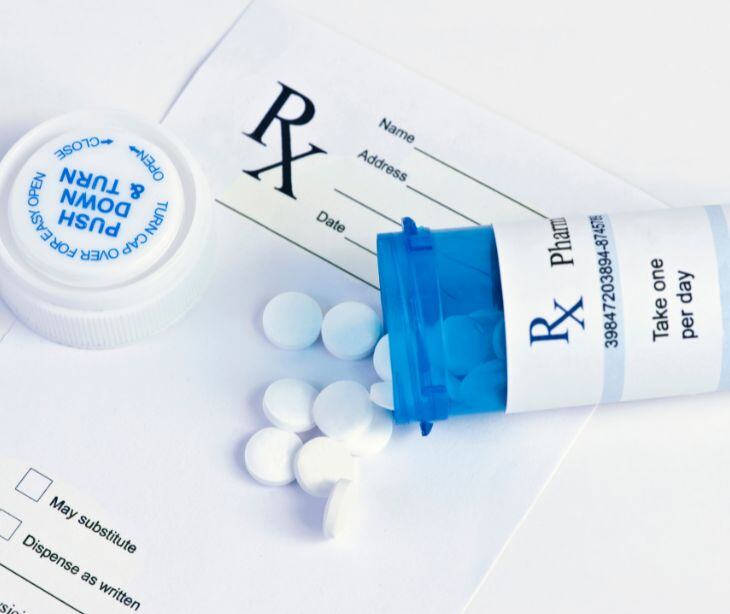2 min read
Using text messaging to provide psychiatric medication clarification
Kirsten Peremore
September 25, 2024

Psychiatric medication comes with a range of contradictions and symptoms that are difficult for a patient to absorb in a single sitting. The consequences of failing to effectively manage treatment make it all the more necessary to have a means to easily communicate the most immediate clarifications like HIPAA compliant text messaging.
The importance of medication clarifications in psychiatric treatment
In “Text Message Medication Adherence Reminders Automated and Delivered at Scale Across Two Institutions: Testing the “Nudge” System: Pilot study” the author put forward, “ Data from meta-analyses suggest personalized messages have greater effects compared to messages that are not specifically tailored for the patient.21 One recent meta-analysis by Thakkar et al., showed that mobile phone text messaging approximately doubles the doubles the odds of medication adherence.”
Medication clarification is a communication practice where healthcare providers discuss the full spectrum of a patient's medication regimen. In psychiatric care, the effectiveness of treatment closely depends on the patient's adherence and their comprehensive understanding of how their medications work to manage their symptoms. For instance, many psychiatric drugs require weeks to show benefits, or they might need dosage adjustments based on patient responses.
For long term psychiatric treatment, continuous medication clarification is indispensable. Mental health conditions often require extended periods of care, and medication regimens may evolve as the patient's condition progresses or improves. Ongoing clarification supports this adaptive treatment approach, helping patients and caregivers understand the dynamic nature of psychiatric care.
Why text messaging is the best tool for psychiatric medication clarification
When more complex information needs to be shared, HIPAA compliant email is the perfect tool. It allows for detailed explanations to be sent, comprehensive medication guides, or extensive instructions for managing medication regimens.
HIPAA compliant text messaging on the other hand allows providers to quickly send reminders, dosage instructions, and alerts about potential side effects straight to patients' phones. Patients typically find the convenience of receiving updates via text both practical and unobtrusive. The immediacy makes sure patients receive and read information right away necessary in psychiatric care where timely adherence to medication affects treatment outcomes.
Suitable medication clarifications for text messaging include simple and direct communications like medication reminders, appointment reminders, and immediate updates on medication changes. Text messages can also effectively prompt patients to check their email for more detailed information or encourage them to contact their healthcare provider with any questions or concerns.
Best practices
- Optimizing timing of messages: Schedule reminders to align with each patient's medication schedule, like sending prompts right before breakfast or bedtime to improve medication adherence.
- Addressing cognitive challenges: Keep messages brief and straightforward, with follow-up texts to ensure understanding, particularly for patients with memory or attention impairments.
- Integrating educational links: Include links in texts to educational videos or infographics about medications, helping patients understand their treatments better.
- Using language that resonates: Adjust the language in messages to be culturally sensitive and easily understood, using familiar terms and references.
- Crisis management prompts: Provide easy options in texts for patients to report crises or severe side effects, linking them directly to emergency contacts or support.
- Maintaining engagement: Send nonmedication related messages occasionally, such as health tips or motivational quotes, to keep the communication supportive and engaging.
- Personalized feedback requests: Use texts to ask for feedback after starting a new medication, allowing for quick adjustments based on the patient’s experience.
- Ensuring compliance through confirmation texts: Implement a response system where patients confirm via text after taking their medication, aiding in tracking and encouraging adherence.
FAQs
Do pharmacies need consent before texting patients' medication reminders?
Yes, pharmacies must obtain explicit consent from patients before sending them medication reminders via text to comply with HIPAA regulations.
What is the difference between marketing and other communications under HIPAA?
Under HIPAA, marketing involves communication about a product or service that encourages recipients to purchase or use it, whereas other communications might include treatment information and healthcare operations that do not require patient authorization.
What is the difference between authorization and consent?
Authorization is a formal, written permission covering specific disclosures of personal health information for certain purposes, while consent is a general agreement that may not specify particular uses or disclosures under HIPAA.
Subscribe to Paubox Weekly
Every Friday we'll bring you the most important news from Paubox. Our aim is to make you smarter, faster.



